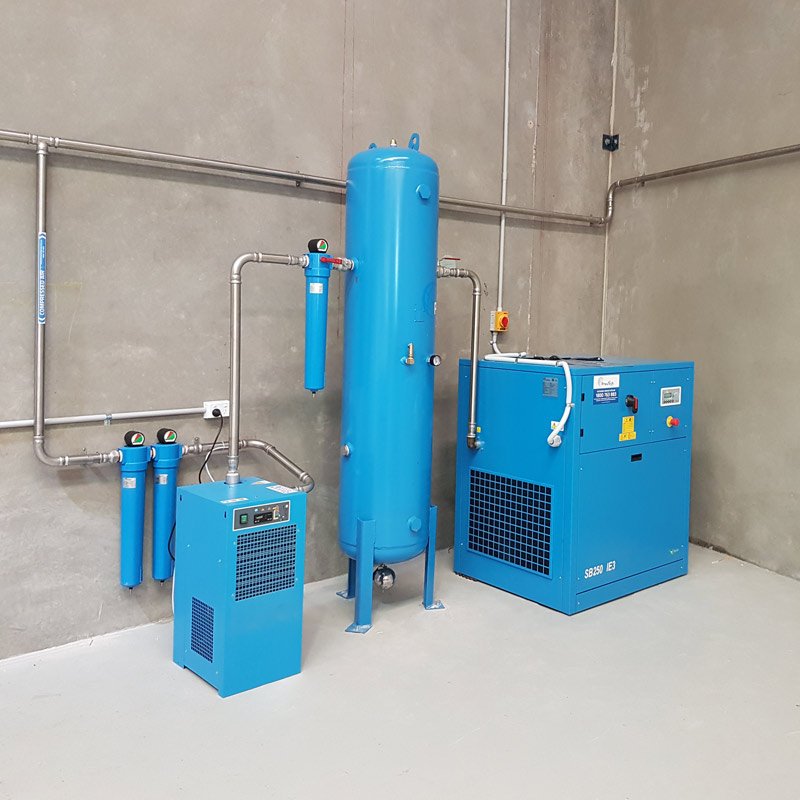Air Compressors are complicated machines with so many factors to consider; horsepower, cubic feet per minute, PSI, tank mounted, base mounted, direct drive, belt drive.
The list of specifications for air compressors seems endless.
Don’t stress!
We have the listed and explained the 7 factors you should be taking into account when the time comes to buying Air Compressors.
- Motor Power (Hp/kW)
- Electrical Requirements
- Free Air Delivery (cfm/ L/min)
- Fixed Speed vs Variable Speed
- Duty Cycle
- Air Quality
- Moisture and Condensation
01. Motor Power
Motor power is measured in Horsepower (Hp) or Kilowatt (kW). Therefore power is a good indicator to which size air compressor your business needs.
Most Industrial Air Compressors start at 7.5hp (5.5 kW) and can exceed 300hp (250kW).
With this in mind any compressor under 7.5hp will likely not have sufficient power to provide your business with reliable compressed air.
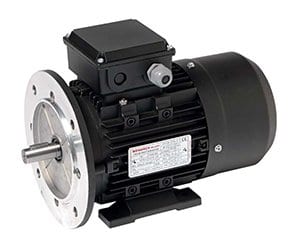
02. Electrical Requirements
Industrial Air Compressors require large amounts of electricity, much like most of your equipment. As a result the minimum your building will require is three phase power.
Furthermore the type of compressor will generally determine the minimum power you will require.
Tank Mounted Compressors require 16 amps minimum. Whereas Base Mounted Air Compressors will require a minimum of 45 amps.
Therefore understanding your electrical requirements will ensure you can will maximise your systems efficiency.
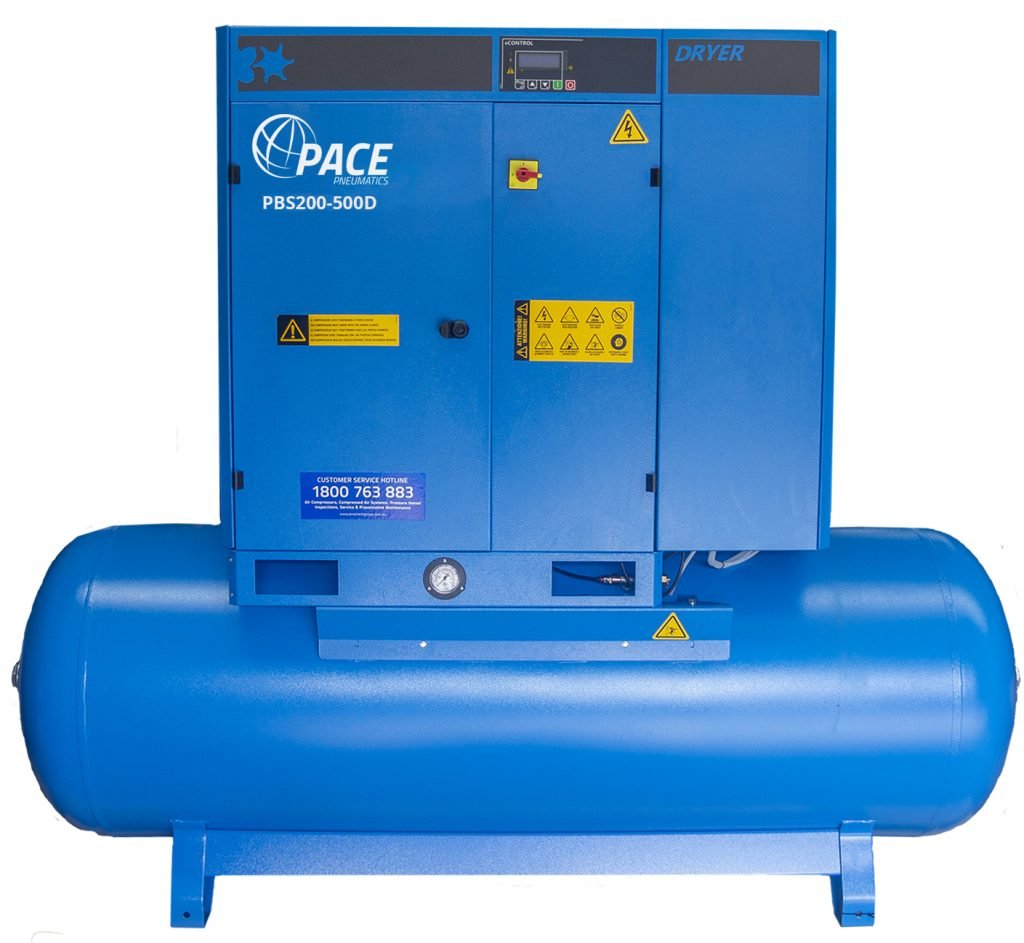
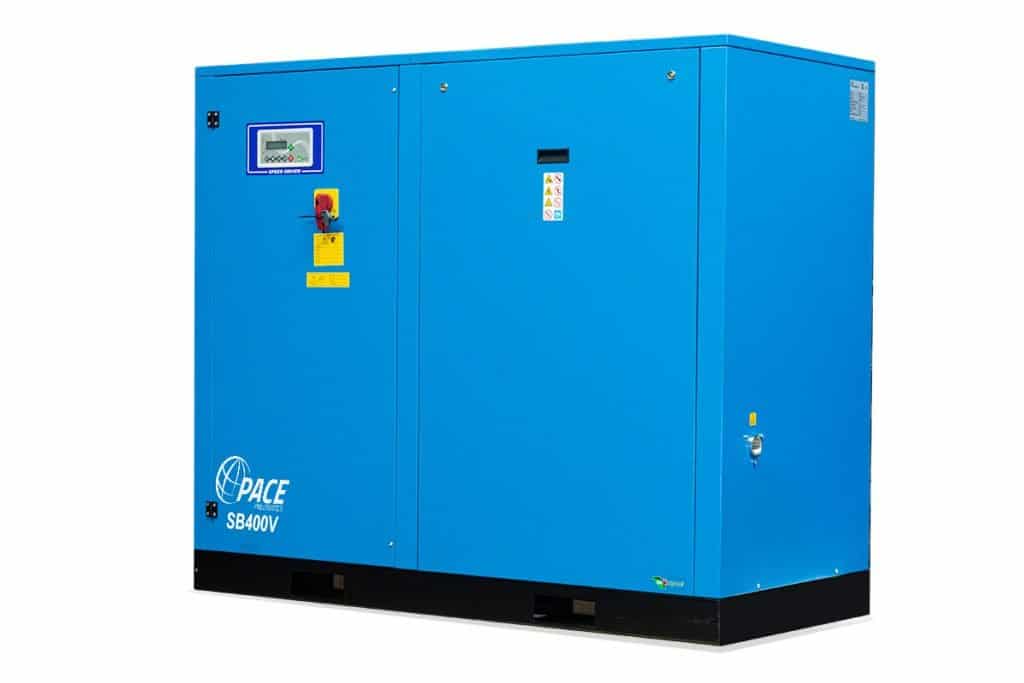
03. Free air delivery
Knowing the exact air requirements you need is the single hardest part of buying an air compressor.
Air Delivery is the volume of air the produced and is measured in cubic feet per minute (cfm) or liters per minute (L/min).
Therefore understanding your total air consumption at peak demand will help you choose the right air compressor for you.
Secondly it is also important to leave enough tolerance to allow for expansion in the future.
Our Product Experts are trained to evaluate your current and future air flow requirements.
04. Fixed Speed vs Variable Speed DRIVE air compressors
The type of equipment you’re using will determine if you need a fixed speed or a variable speed air compressor.
Fixed speed compressors either run at full speed or don’t run at all, making them ideal for situations where you need compressed air 100% of the time.
While Variable speed drives also run at full speed all the time, they have the advantage of being able to fluctuate speeds to match the current demand reducing overall energy usage.
In case you’re still unsure we have listed the benefits of both Fixed and Variable Speed Compressors:
Fixed Speed Compressors:
- Lower purchasing cost
- Increased parts availability
- Cheaper maintenance costs
- Designed for constant demand applications
Variable Speed Compressors:
- Lower ambient noise levels
- Reduce energy consumption
- Increased running life
- Consistent and reliable pressure

05. Air Compressors Duty Cycle
The duty cycle is how long a compressor can run in a 10 minute period before overheating or causing damage.
To clarify duty cycle is expressed as a percentage. For example industrial air compressors to have duty cycles between 75-100% letting you work for extended time periods or even continuously. Whereas small personal compressors could have duty cycles as low as 60%.
Therefore the larger the percentage the longer the compressor can work before having to take a break increasing efficiency and minimising downtime.
06. Air quality
Air Quality is another key factor to consider when buying a new compressor.
In order to ensure you have the ideal quality air for your applications is critical to maintaining system efficiency and is often overlooked by businesses.
For this reason choosing the right air treatment options at the time of purchase will prevent damage to your tools or equipment.
Compressed Air treatment options include:
- Compressed Air Filters
- Condensate Drains and Separators
- Water Oil Separators
07. managing your air compressors Moisture and Condensation
Atmospheric air contains water vapor, when compressed that moisture moves through your pipelines then creates rust in your equipment and tools. In some extreme cases your equipment can be permanently damaged.
Sounds expensive right?
Fortunately tank mounted compressors come with integrated air dryers. Eliminating the issue at the source. However tank mounted options come in limited sizes and pressure options.
Large scale operations will need a dedicated Refrigerated Air Dryer. Notably this allows you to add on pre and post filtration, giving you instrument quality air.
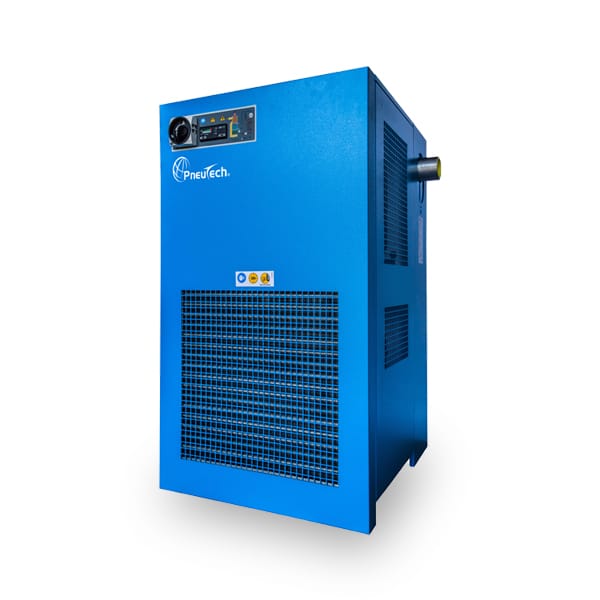
conclusion
It is important to realise that buying a new air compressor is hard, there are so many factors to consider however overlooking something could end up costing you in the long run.
But fear not! Now you definitely have a better understanding of what your business needs are. Ultimately you are ready to make the best choice for your business.
Even if you are unsure the team at Focus Industrial are standing by to help you maximise your businesses potential.
